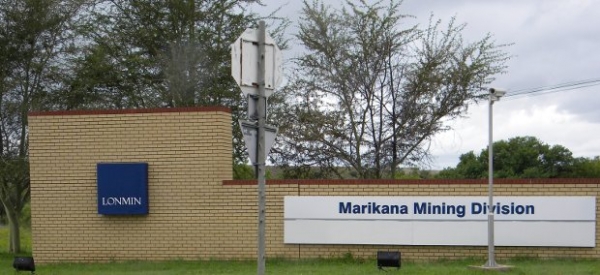Marikana: All we want from the state is an opportunity for honest engagement

Today, the Pretoria High Court dismissed the urgent application by Advocate Dali Mpofu on behalf of Mzoxolo Magidwana, who was shot by police during the Marikana massacre, and the Association of Mineworkers and Construction Union (AMCU), for the Marikana Commission’s findings to be released immediately. The President has given a self-imposed deadline of 30 June for releasing the report.
16 August 2015 will mark the commemoration of the largest killing of protestors in post-apartheid SA, when 34 miners were gunned down by the police. To this day, no one has accepted responsibility for the tragic events of that day.
The Commission, headed by Judge Ian Farlam, was established to investigate the incident. It submitted its findings to President Jacob Zuma on 31 March 2015, but the President has still not released them to the public.
At Marikana, the world witnessed one of the most profound failures of public order policing that our democracy has seen. Justice Madlanga referred to the massacre as “the darkest hour in our history as a democratic South Africa” as he addressed a room full of concerned members of civil society in early May 2015. The widows of the fallen miners later came to address this assembly, telling of the hardships they have had to endure as a result of this monumental failure of public order policing.
The families of the killed miners await some form of acknowledgement or accountability on behalf of the police. They keenly anticipate the affirmation of their grief and sense of profound loss. While we can never fully appreciate the experiences of those directly affected by the events at Marikana, we should continue to raise our voices in a united call for accountability, and for justice for the 78 people who were injured, and the 34 miners killed on that fateful day.
The happenings at Marikana raises a range of complex political and economic issues.
From an economic perspective, the tentacles of the underlying issues extend to the political and social acceptance of a regime which continues to exploit and oppress workers. The connection between the mining industry and the establishment of the migrant labour system is a historically accepted fact. Yet, we often do not acknowledge that generally, there is a vulnerable labour force that includes permanent and casual workers who are either residents from the mining towns, or who often make the trek across provincial borders to seek a living wage, but also to seek experience as part of apprenticeships with the large mining corporations. The vulnerabilities which exist on all these levels cannot be denied, and when those workers who may make use of collective bargaining (because they are unionised) finally rise up to try to change their circumstance, they are faced with corporate collusion on behalf of those who have been set up to aid them.
The failure we have witnessed at Marikana is as much attributable to the Department of Labour as it is to the SAPS. What has been done to ensure that the collective bargaining process actually empowers and protects vulnerable workers? It is clear that there is a need for more effective complaints resolution mechanisms for workers than that which currently exists, and we cannot divorce the lack thereof from the unrest and frustration experienced by the striking workers at Marikana.
The president has not released the report yet, because his legal team says he’ll have difficult questions to answer once the report is made public and that he needs to be prepared. It is safe to say that through society’s engagement with what has already been released of the incident via the media, questions are already lurking. If it’s a matter of crafting a defence, there are forums and spaces for this. If it’s a matter of searching for any justifications, that could prove to be more damaging to the credibility and legitimacy of the state institutions involved. What our society needs is an honest opportunity to engage with the relevant state institutions on the happenings at Marikana.
We need to be assured that we have a government which acknowledges that while it is not a perfectly oiled machine, when things go wrong, it can take responsibility for people’s conduct, and ensure that there is justice for those directly affected. Through that only, will it command the respect and loyalty from the people whose interests the state is meant to represent. And our leaders might then be surprised to find a citizenry more willing to rally behind it to find a constructive way forward to prevent future Marikanas.
The author is a researcher for Ndifuna Ukwazi. Views expressed are not necessarily GroundUp’s.
Next: Bringing Omar al-Bashir to justice
Previous: New hope for labour movement

This article is licensed under a Creative Commons Attribution-NoDerivatives 4.0 International License.


